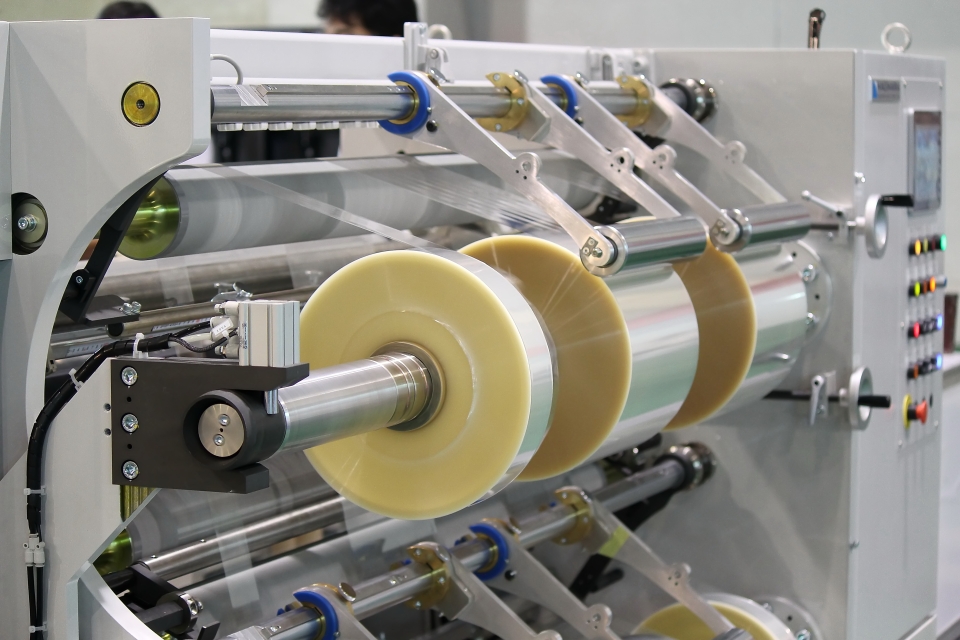An Insight into Development of Taiwan’s Plastic and Rubber Machinery Industry: Energy Efficiency and Smart Machines Can Be Key
2023/07/21 | By Andrew Hsu
In recent years, Taiwanese manufacturers of plastic and rubber machinery have generally seen substantial growth. Factors behind the thriving landscapes include the surge in consumption in emerging countries, the rapid expansion of the packaging business due to the proliferation of global e-commerce, the momentum of the automobile industry, and the boom in health care and medical services amid the COVID-19 pandemic.
Despite the industry's promising prospects, there are two notable trends that deserve attention. Firstly, in order to align with the ESG movement and the global objective of achieving "Net Zero by 2050," the industry should gear up to explore new materials and embrace the concept of a "circular economy." Secondly, in response to the growing prevalence of high-mix low volume orders, insiders have to place increasing emphasis on the research and development of intellectualization, flexible manufacturing, and process integration technologies. In 2022, the K trade fair, a German-based, triennially held trade fair for global plastic and rubber industries, highlights three prominent themes: "Circular Economy," "Digitalization," and "Climate Protection." Similarly, the 2022 TaipeiPLAS showcases three key trends: "Smart Machinery," "Next-gen Materials," and "Circular Economy." These consistent themes across different exhibitions further underline these concerns.
Under such a scenario, insiders in Taiwan’s plastic and rubber machinery industry are actively engaged in the development of intelligent plastic and rubber machinery, along with their respective production lines. One striking example is Chuan Lih Fa (CLF) Machinery Works Co., Ltd. Their "Outward Toggle Type Plastic Injection Molding Machine" and "Two Platen Plastic Injection Molding Machine" are equipped with energy-saving servo systems and high-performance, energy-efficient servo motor storage units. Additionally, their "All Electric Plastic Injection Molding Machine" utilizes high-end control and servo motors from Germany’s Siemens, to deliver exceptional performance and precision. It also supports remote monitoring functions, providing a powerful and user-friendly operational interface.
Also responding to the abovementioned trends is the Industrial Technology Research Institute (ITRI), a Taiwanese government-funded R&D institute, which has introduced the "Intelligent Cloud for Machinery" to offer a comprehensive solution to the industry. This innovative system employs a consistent communication protocol and an international standard ICT interface for existing equipment. By solving device connection issues and reducing integration time for back-end management systems, it establishes a real-time detection mechanism.
And on the other hand, according to the viewpoint of American academic Michael Porter, enterprises in need of gaining competitive advantages in the future should integrate social responsibility into their business strategies. In this logic, Taiwan's plastic and rubber machinery industry can see the net-zero trends as opportunities, instead of punitive measures. Recognizing this, the Taiwan Association of Machinery Industry has taken the initiative to establish the "Committee for Advancing Net Zero and Sustainable Practices in the Mechanical Industry." Chairman Larry Wei presents the government with four insightful suggestions to facilitate progress in this area. Firstly, the Taiwanese government should offer assistance for carbon footprint verification (CFV) to machinery equipment practitioners. Secondly, policies or funding with a focus on the R&D for energy conservation and carbon reduction technologies can be developed to foster collaboration between industry, government, academia, and research institutions. Thirdly, related regulations and incentives should be established to encourage the industry to upgrade outdated devices. Lastly, government officers should help speed up the nurturing of technical talents in the fields of energy-saving and sustainability to facilitate the industry's sustainable development.
Dr. Harrison Hsiung, from ITRI Industrial Economics and Knowledge Center, provides further analysis, stating that Taiwan's plastic and rubber machinery industry should focus on developing application solutions in energy efficiency, digitalization, smart machinery, and other intelligent manufacturing technologies. By integrating industry knowledge with emerging ICT and smart technologies, the industry can accelerate the development of new-generation equipment production lines and comprehensive manufacturing solutions. To achieve this, it is important to leverage government and academic resources and establish an ecosystem for plastic and rubber smart machinery. This ecosystem can facilitate research and development activities, as well as foster product innovation within the industry.





